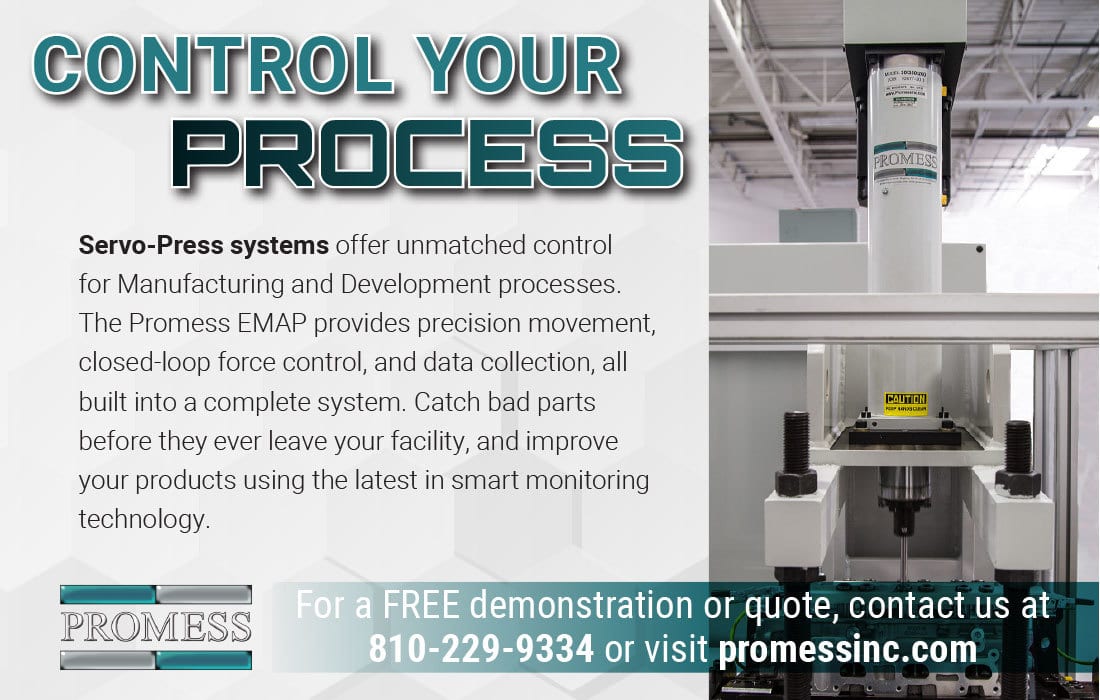GM Ramps Up EV Production at Tennessee Plant
NEWS
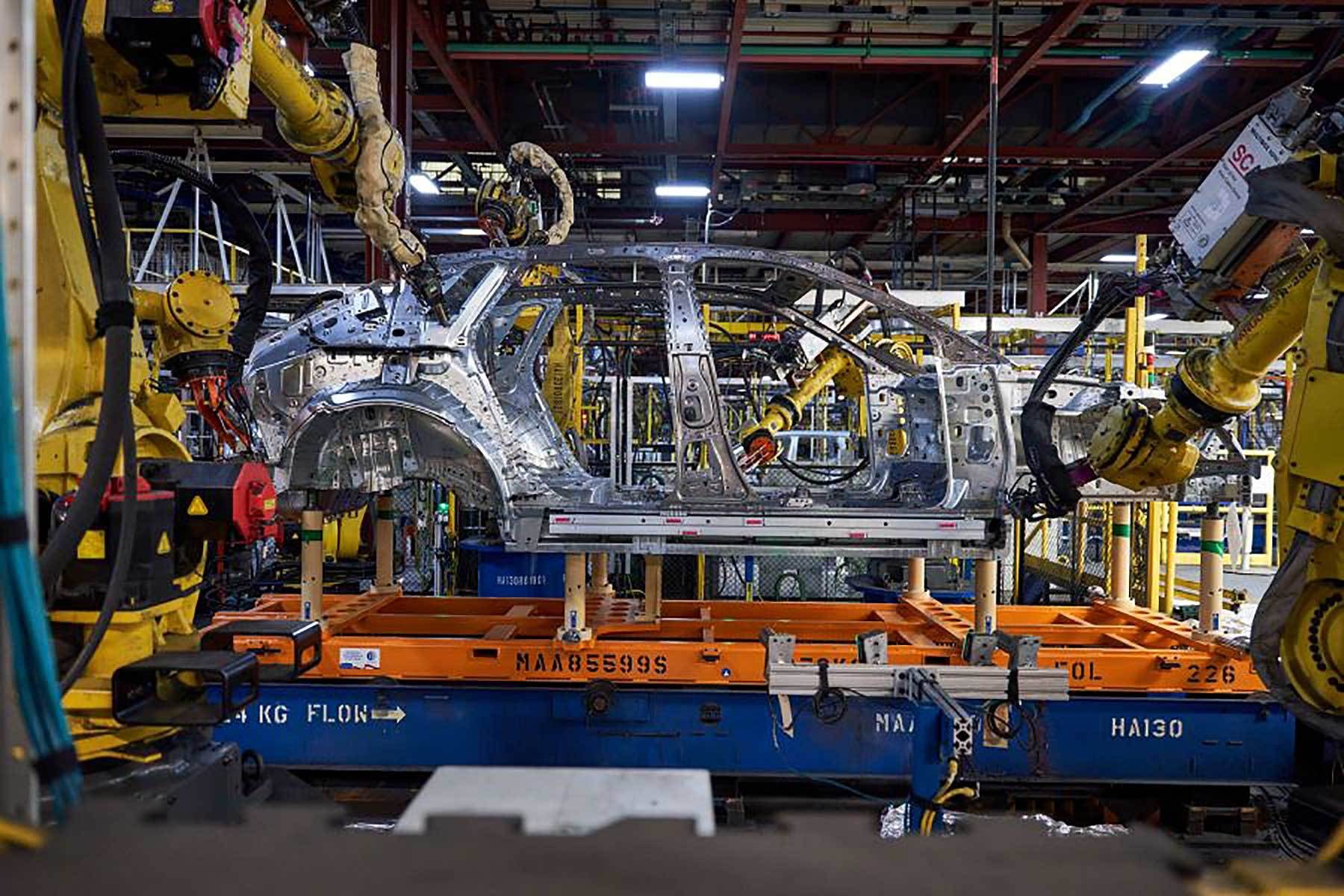
General Motors has begun producing the Cadillac LYRIQ sport utility vehicle at its assembly plant in Spring Hill, TN. Photo courtesy General Motors
SPRING HILL, TN—General Motors has begun producing the Cadillac LYRIQ sport utility vehicle at its assembly plant here. The 32-year-old manufacturing complex, formerly the home of Saturn, is GM’s largest facility in North America.
Spring Hill Assembly is one of five plants that GM has earmarked to mass-produce EVs in North America, along with Factory ZERO in Detroit, Orion Assembly in Michigan, CAMI in Canada and Ramos Arizpe Assembly in Mexico.
“The Cadillac LYRIQ sets the standard for the future of Cadillac and marks another major milestone in [our] commitment to an all-electric future,” says Mark Reuss, president of General Motors. “This is a monumental day for the entire GM team. We retooled Spring Hill Assembly with the best, most advanced technology in the world and the team worked tirelessly to complete the preparations nine months ahead of the original schedule.”
The Cadillac LYRIQ, the brand’s first all-electric vehicle, is built on GM’s Ultium platform, the heart of the company’s EV strategy. The Ultium platform encompasses a common electric vehicle architecture and propulsion components like battery cells, modules, packs, drive units, traction motors and integrated power electronics.
“Through the Ultium Platform, [we] will realize a strategic value chain shift across [our] network of vehicle assembly plants as the company commonizes and streamlines machinery, tooling and assembly processes,” explains Reuss. “This flexibility enables lower capital investments and greater efficiencies as additional assembly plant transformations occur.”
Navistar Opens EV Truck Plant in Texas

Navistar’s new assembly plant in San Antonio, TX, will mass-produce electric trucks. Photo courtesy Navistar International Corp.
SAN ANTONIO—Navistar International Inc. opened a new assembly plant here that will mass-produce electric trucks. The nearly 1 million-square-foot manufacturing facility includes a body shop, paint shop, general assembly shop and logistics center equipped to produce Class 6-8 vehicles.
The first vehicle off the line was an International eMV Series electric truck. However, the flexible facility has the capability to manufacture vehicles equipped with either electric or diesel engine power trains.
"The San Antonio [factory] was meticulously planned and constructed to highlight our many manufacturing strengths and build toward future manufacturing goals surrounding Industry 4.0 technologies, quality and sustainability, “ says Mark Hernandez, executive vice president of global manufacturing and supply chain at Navistar.
The plant will serve as Navistar's benchmark for lean manufacturing principles to eliminate waste, improve product quality, drive operational efficiency, and reduce cost and time. Industry 4.0 principles have been incorporated to connect digital and physical technologies, allowing the plant to be more connected and easily make data-driven decisions.
According to Hernandez, operating with a data-driven approach will help the company focus on sustainability goals and metrics, in addition to supporting a leaner manufacturing output.
"We are incorporating the latest manufacturing principles—digital factory, connected machinery, robust lean manufacturing processes and cloud analytics—to enable predictive quality and maintenance, and allowing data-driven decisions to be made on the shop floor in real time," says Hernandez.
"In support of our company focus, we are taking actions to reduce the environmental impact of our manufacturing operations with the goal of becoming zero carbon as we transform the future of transportation,” adds Hernandez.
Navistar’s new plant was constructed with energy efficiency and sustainability goals in mind. Translucent panels allow natural light to brighten the indoor space as a supplement to an LED system that consumes 75 percent less power than conventional lighting. The building also includes energy efficient wall paneling to better regulate indoor temperatures.
Robots to Play a Key Role in EV Transformation
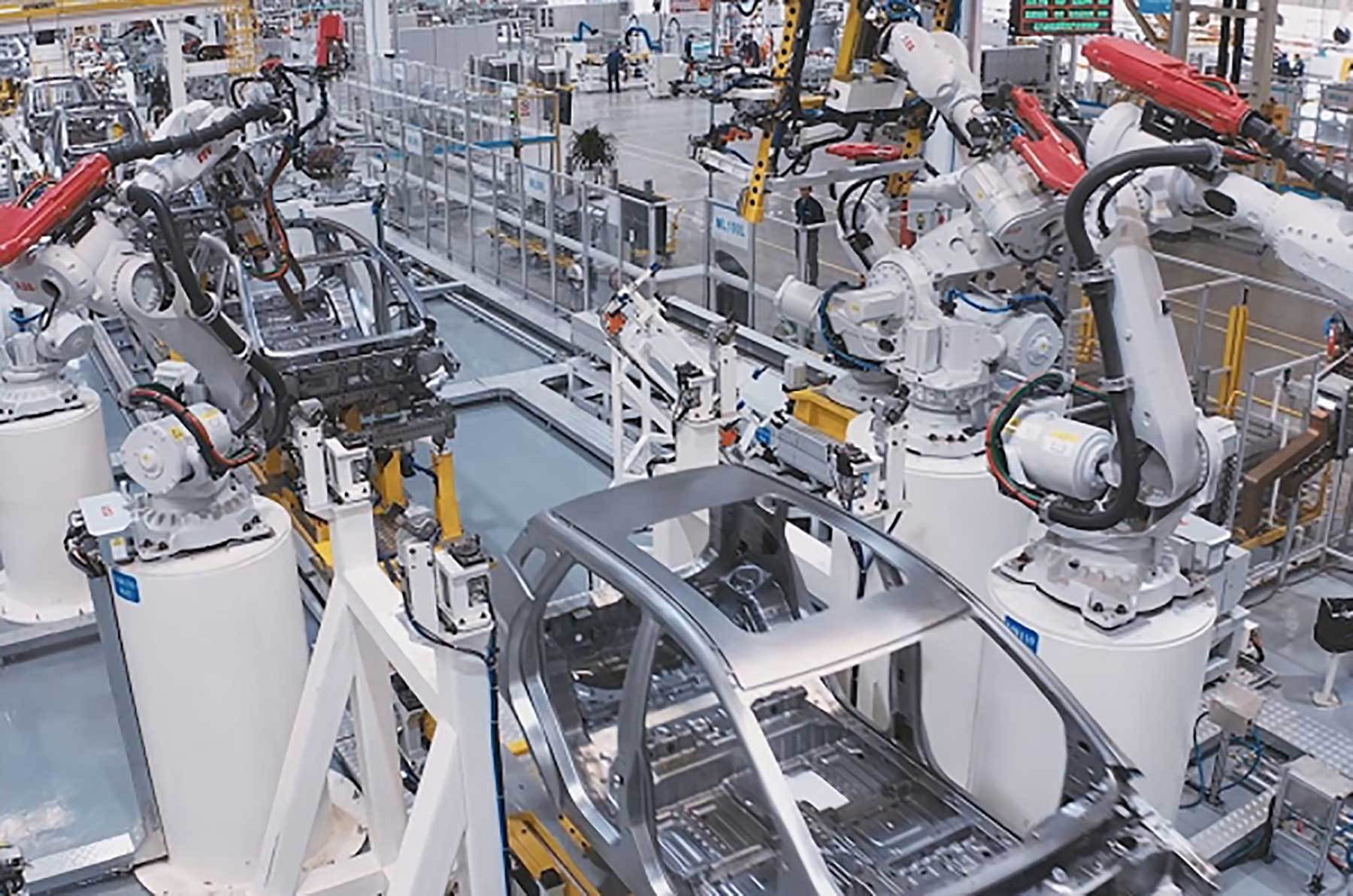
Automation will play a key role in the EV revolution that is bringing wholesale changes to automotive manufacturing. Photo courtesy ABB Robotics
ZURICH—Demand for robots is growing rapidly, as companies in numerous industries look for new ways to enhance their productivity and competitiveness post-pandemic. According to a recent survey conducted by ABB Robotics, automation will also play a key role in the EV revolution that is bringing wholesale changes to automotive manufacturing.
"The pandemic accelerated far-reaching global mega trends—from labor shortages and supply chain uncertainty, to the individualized consumer and growing pressure to operate sustainably and resiliently—leading new businesses to look to robotic automation,” says Marc Segura, president of ABB Robotics. “As technology opens new opportunities for meeting customer demands, new trends will continue to emerge that will further drive demand in areas where robots have traditionally not been used.
“With many countries restricting and phasing out the production of combustion engine vehicles over the next decade, the race toward electric cars has accelerated,” Segura points out. “Manufacturers and their supply chains must tackle the complexity of diversifying into EVs alongside combustion engine vehicles, to meet varying regulatory frameworks governing EV adoption across the globe.
“The speed and added flexibility needed will see new and established manufacturers move away from traditional linear manufacturing, toward modular, flexible production,” predicts Segura. “EV is not about a change only in the power train, but a larger transformation to a digitized car.
“This transition will also see the growing uptake of robots in combination with other technologies, including autonomous mobile robots,” explains Segura. “This will enable manufacturers to optimize the delivery of components across facilities and enable integrated scalable, modular production cells—methods traditionally associated with e-commerce and consumer goods, but now required in automotive to ensure the necessary flexibility to meet varying levels of demand.”
Another major shift will see battery manufacturing brought closer to vehicle assembly to meet sustainability and regional requirements, which in most cases requires new facilities. For instance, ABB is in the process of providing state-of-the-art robots for a new highly automated battery assembly plant that Scania is building in Södertälje, Sweden.
The facility will assemble battery modules from cells supplied by Northvolt's battery factory in Skellefteå. Completed battery packs will be delivered directly to Scania’s truck assembly plant in Södertälje. Multiple ABB robots will be involved in the assembly process when the new factory opens next year, including IRB 390, IRB 4600 and IRB 6700 models.
ATS Industrial Automation Opens EV Battery Facility in Ohio

ATS Industrial Automation recently unveiled a new facility near Columbus, OH, to produce battery assembly and test equipment. Photo courtesy ATS Industrial Automation Inc.
LEWIS CENTER, OH—ATS Industrial Automation Inc. recently unveiled a new facility here to produce battery assembly and test equipment. It is currently building assembly and test lines for General Motors that will enable the automaker to mass-produce Ultium battery packs used in a variety of electric vehicles.
The opening ceremony was attended by Ohio governor, Mike DeWine, in addition to members of GM’s senior leadership team.
“This is an opportunity to highlight ATS,” says Andrew Hider, president and CEO of ATS Industrial Automation. “To stand side-by-side with a crucial customer and really align on the possibility, and on what we can do to drive change.”
“We have a long-standing working relationship with ATS and are proud of the work we have accomplished implementing our strategy for zero crashes, zero emissions and zero congestion,” adds David Russler, engineering group manager for battery and engine assembly at GM.
To scale up production efforts to satisfy growing customer demand, GM needed to automate its EV battery assembly and testing operations. The automaker faced challenges around using automation, such as making quality welds, optimizing floor space to maximize production, and coordinating material delivery to assembly lines. GM partnered with ATS to solve these challenges.
The ATS SuperTrak modular conveyor platform is the heart of GM’s new Factory ZERO battery assembly plant in Detroit. It enabled the automaker to increase throughput and gain a 50 percent improvement in plant floor efficiency.
ATS also supplied GM with a laser welding system that produces thousands of robust joints on battery modules and packs. It spent three years developing a unique process that accurately detects and validates the welds. By reducing any opportunity for a weld failure, ATS optimized welding efficiency by 30 percent, creating a reliable and repeatable production process.
“This project has required support from around 650 ATS employees in three countries and is now allowing the company to support nine different phases of GM’s work in three of their facilities,” says Hider. “The end result is the culmination of nearly 20 years of execution in this space and uses industry-leading insights to build a solution that is high-tech, high-speed and high-value.”
Later this year, ATS plans to build a 240,000-square-foot addition to its Ohio facility, which is located in a suburb of Columbus.
“Our expansion demonstrates growing demand; ATS has experience to support our key EV partners,” says Dave Kelly, vice president of sales at ATS Industrial Automation, SGA Mobility. “We see this growth as a continuation in our EV strategy to support the...shift to sustainable battery and battery storage technologies.”
Volkswagen to Invest $7 Billion in North America
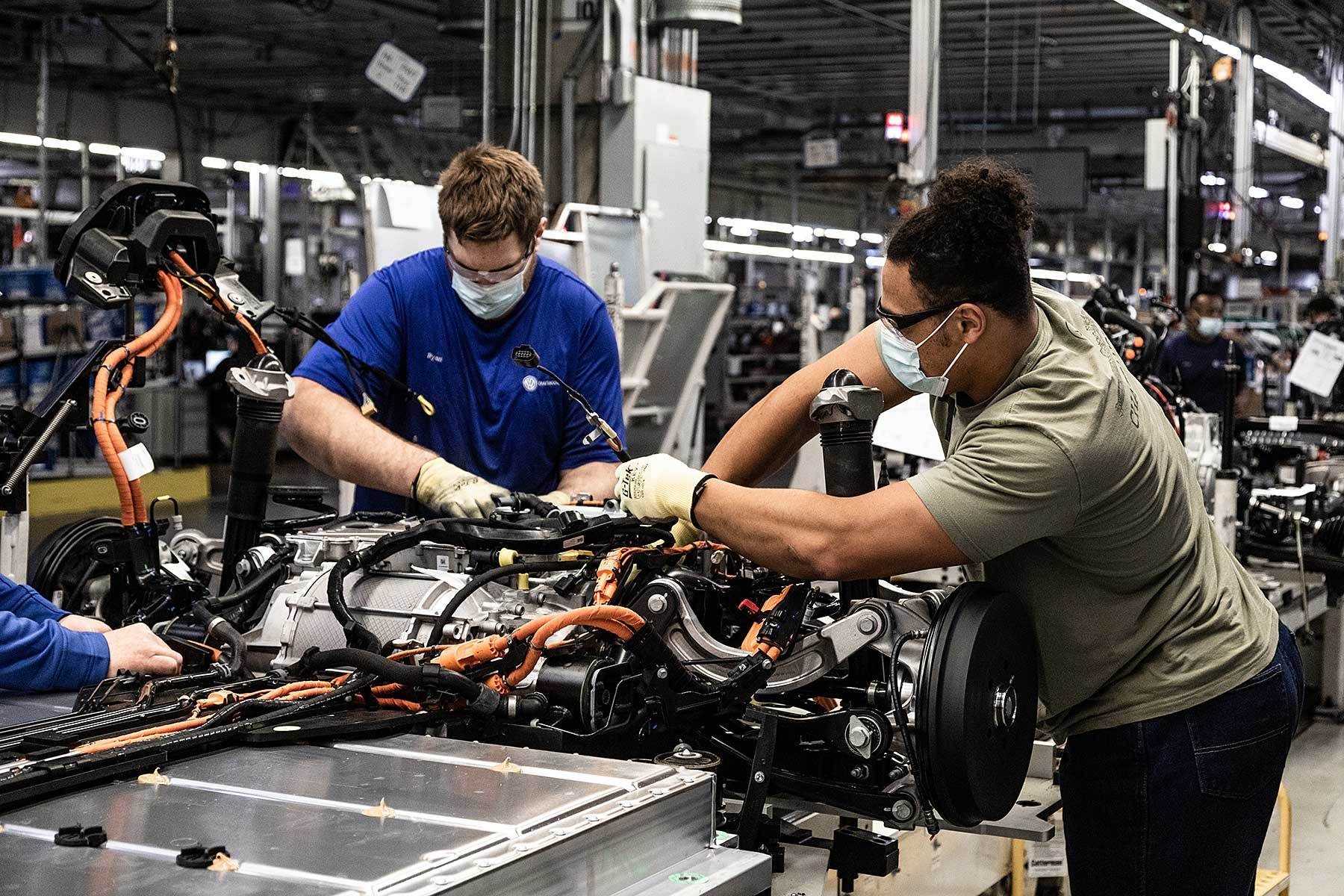
Volkswagen plans to invest more than $7 billion in North America to boost its EV manufacturing capabilities. Photo courtesy Volkswagen AG
HERNDON, VA—Volkswagen AG plans to invest $7.1 billion over the next five years in North America to boost its product portfolio, regional R&D and manufacturing capabilities. By focusing on local engineering talent, battery know-how and software development, VW aims to have 55 percent of its U.S. sales be fully-electric by 2030. The automaker plans to offer 25 new EVs to domestic consumers through 2030.
“American ingenuity and manufacturing know-how are at the heart of our strategy for growth, and thousands of men and women are working hard every day throughout North America to bring the Volkswagen brand to life for consumers,” says Scott Keogh, president and CEO of Volkswagen Group of America Inc. “This profound commitment to our localized capabilities will transform Volkswagen into one of the leading EV brands known for its commitment to innovation, quality and the communities we call home.”
Assembly of the ID.4 SUV will begin later this year at the company’s large manufacturing complex in Chattanooga, TN, sourced mostly from regional suppliers. Volkswagen also plans to upgrade its factories in Puebla and Silao, Mexico, to mass-produce EVs and components, such as traction motors, by the middle of the decade.
As part of its preparation to launch the American-assembled ID.4, VW has invested more than $2.7 billion in supplier partnerships throughout the North American continent, including its battery partnership with SK Innovation. In addition, the company plans to establish a battery cell production operation in the U.S. to meet growing demand.
According to Keogh, VW is also expanding its battery know-how in the United States. In May, its new Battery Engineering Lab in Chattanooga will start operations. As result of a $22 million investment, the facility will enable the company to test and validate batteries for all of its electric models in the American marketplace.
Mercedes-Benz Opens New Battery Assembly Plant in Alabama
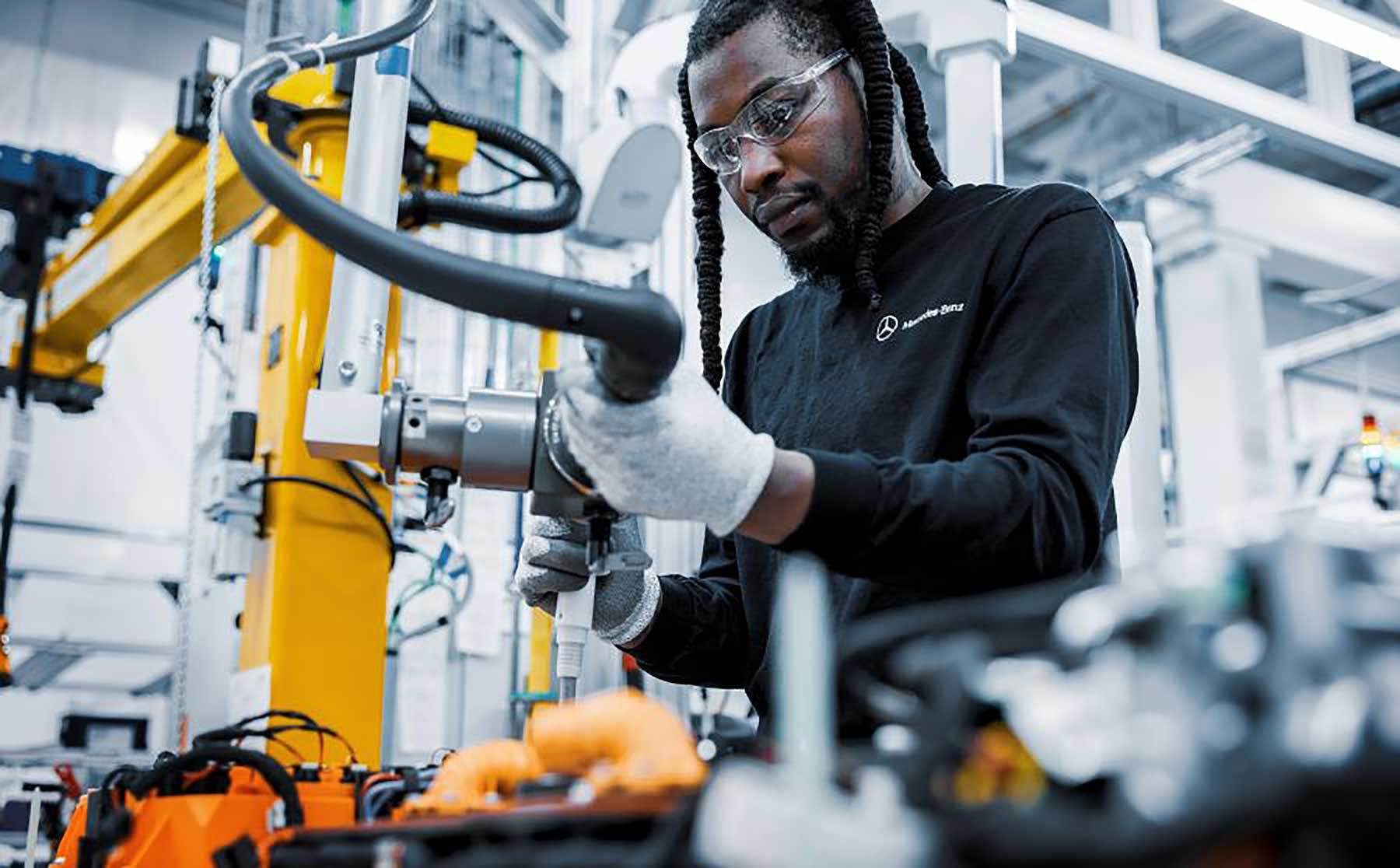
Mercedes-Benz recently opened a battery assembly plant near its factory in Tuscaloosa, AL. Photo courtesy Mercedes-Benz Group AG
TUSCALOOSA, AL—Mercedes-Benz Group AG has opened a battery assembly plant near its factory here, a few months ahead of when it will start producing electric vehicles. The state-of-the-art facility in Bibb County will provide batteries for the new EQS SUV and EQE SUV.
“The opening of our new battery plant in Alabama is a major milestone on our way to going all-electric,” says Ola Källenius, chairman of the board of management at Mercedes-Benz. “With our comprehensive approach, including a local cell sourcing and recycling strategy, we underline the importance of the U.S., where Mercedes-Benz has been successful for decades. We’re proud to create new, future-proof jobs to build all-electric SUVs ‘Made in the USA' at a plant that is such an established part of our production family.”
Envision AESC will supply the factory with lithium-ion battery modules it will produce at a new facility in the United States. According to Källenius, the “highly advanced cell chemistry contains nickel, cobalt and manganese in a ratio of 8:1:1. The reduction of cobalt content to around 10 percent, in addition to the CO2-neutral production of the batteries, enhances sustainability.”
GKN Automotive to Recycle Rare-Earth Magnets
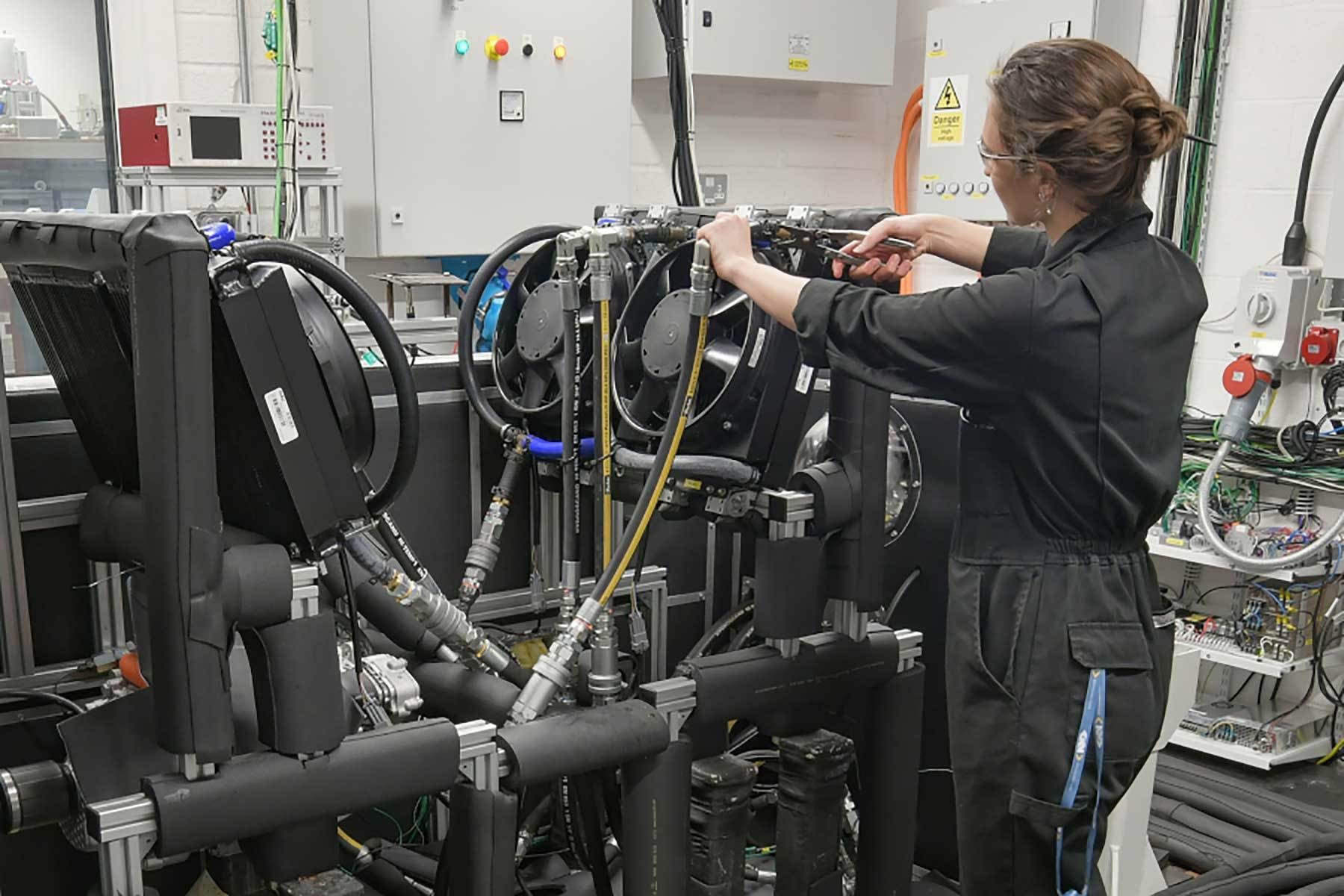
GKN Automotive is participating in an initiative to recycle rare-earth magnets used in electric vehicle traction motors. Photo courtesy GKN Automotive
LONDON—GKN Automotive is participating in an initiative to recycle rare-earth magnets used in electric vehicle traction motors. The SCREAM (Secure Critical Rare Earth Magnets for UK) project aims to improve sustainability, reduce the cost of rare-earth magnet recycling and slash magnet production costs by 10 percent.
GKN Automotive will re-engineer a state-of-the-art 800-volt eDrive motor with recycled magnets produced by fellow partners in the consortium to test their performance and suitability in EV motors. They will also study how the new motor and magnet compare to traditional materials and devices.
Recycled magnets will be assessed for their magnetic, corrosion and mechanical performance and tested in a variety of applications. The development and test procedures will accurately reflect any differences in magnetic and mechanical performance between recycled magnets and virgin equivalents, using the world-class electric motor design, build and test capabilities of the GKN Automotive Innovation Centre in Abingdon, England.
The reuse of rare earth magnets in future electric motors will enable GKN Automotive to improve product sustainability by reducing embedded emissions and the use of raw materials, as well as lowering production costs.
“This leading research project, which brings together key industry leaders across multiple sectors, is vital to ensuring a secure and sustainable supply chain for next-generation electric power trains,” says Gordon Day, managing director of the GKN Automotive Innovation Centre. “Rare-earth magnets are a key component of electric motors, and developing a robust solution for recovering and reusing them will help us reduce our environmental impact in the future.”

